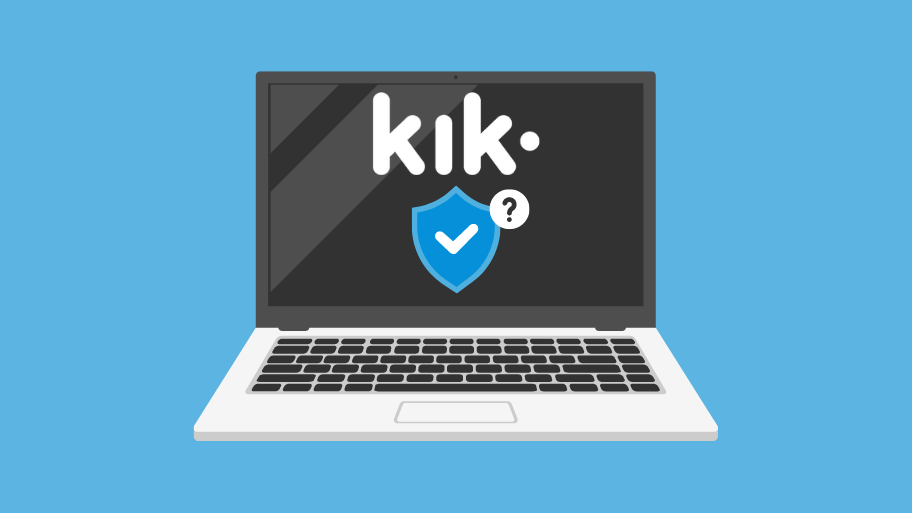Is Kik Safe and Private?
By Corbin HartwickUpdated on December 7, 2017

Okay, so we've told you a bit about what Kik Messenger is and how it's used. Now, we're going to cover some of the safety and privacy concerns that have popped up around Kik, and that you may very well share as well. After all, safety and privacy on the Internet are very hot topics these days, and we here at Techboomers want to make sure that you feel secure and confident when using any of the websites and apps that we feature.
Is Kik private?
Kik is actually one of the more private communication tools of its kind. It only requires an email address for verification, instead of a phone number. It also does not require verification of names or birthdays (beyond being at least 13 years of age), and much of the information sent over it cannot be traced. We'll explain a bit more about that last point below.
Can Kik messages be traced?
By-and-large, messages on Kik Messenger cannot be traced. Kik does not have access to content sent over the app, and residual data regarding messages is deleted shortly after they are sent. However, certain facets of Kik use can be traced by Kik if a user's exact user name is known.
Things that can be traced with a Kik Messenger user's user name include their first and last name, birth date, profile picture, email address, device-related information (such as make and model number), and geographical location when they were logged into Kik (through IP addresses). These pieces of information can be saved by Kik for up to 3 months if they are requested to do so by law enforcement.
How safe is Kik?
Kik is safe if it is used smartly and in good faith. It's privacy features have made it popular among younger users, but they have also made it attractive to people wishing to use the app in an abusive manner. The company has worked to resolve these issues with features such as age limits and opt-ins for talking with strangers.
All in all, though, like many social websites and apps, how safe you are on Kik is a product of how vigilant you are in taking precautions to avoid or otherwise deal with abusive behaviour on Kik. We'll list some of those precautions below.
How to stay safe on Kik: 3 key safety tips
1. Choose a strong password for your account, and don't share it with anyone.
The most basic way to keep your personal information on Kik from being stolen is to make sure that you're the only one who can use your account. One of the most fundamental ways that you can do that is by locking your account with a strong password. Make sure that it's of sufficient length, and try to have it include a mix of upper-case letters, lower-case letters, numbers, and/or special symbols (our how to make a strong password tutorial has more tips regarding this). And never give your password out to anyone who asks for it, not even Kik itself (because if it's really them, they won't).
2. Only share your personal information with people whom you know and trust.
It's okay to share your user name or Kik Code with your family members and your really close friends, but you probably shouldn't share it with anyone else. They may use it to find you and harass you. In addition, while you're using Kik, don't share any personal information with any other users, beyond what's available in your profile. This means things like your street address, date of birth, email address, or phone number.
3. Manage messages from people, especially those who are new to your Kik network.
If someone who isn't already one of your contacts on Kik sends you a message, they will appear under the "New People" heading. Their profile picture will be blurred out, as will any pictures or content from websites that they send you (you can tap on a picture or piece of web content to temporarily view it). If you enter the chat, the Chat and Ignore options will appear at the bottom of the chat. If you tap Chat, the user will be added to your contacts, and you can chat with them as normal. If you tap Ignore, you can tap Delete to get rid of the conversation, tap Block to prevent this person from contacting you again, or tap Report as Spam if you think that this person is just sending out unsolicited messages to random people.
Even if a user is already one of your contacts, you can still block them if they start harassing you or sending you content that you're not comfortable viewing. This help article on Kik explains how to do so.
Okay! That's our primer on safety and privacy on Kik. In the next tutorial of our Kik course, we'll look at how much Kik costs to use.